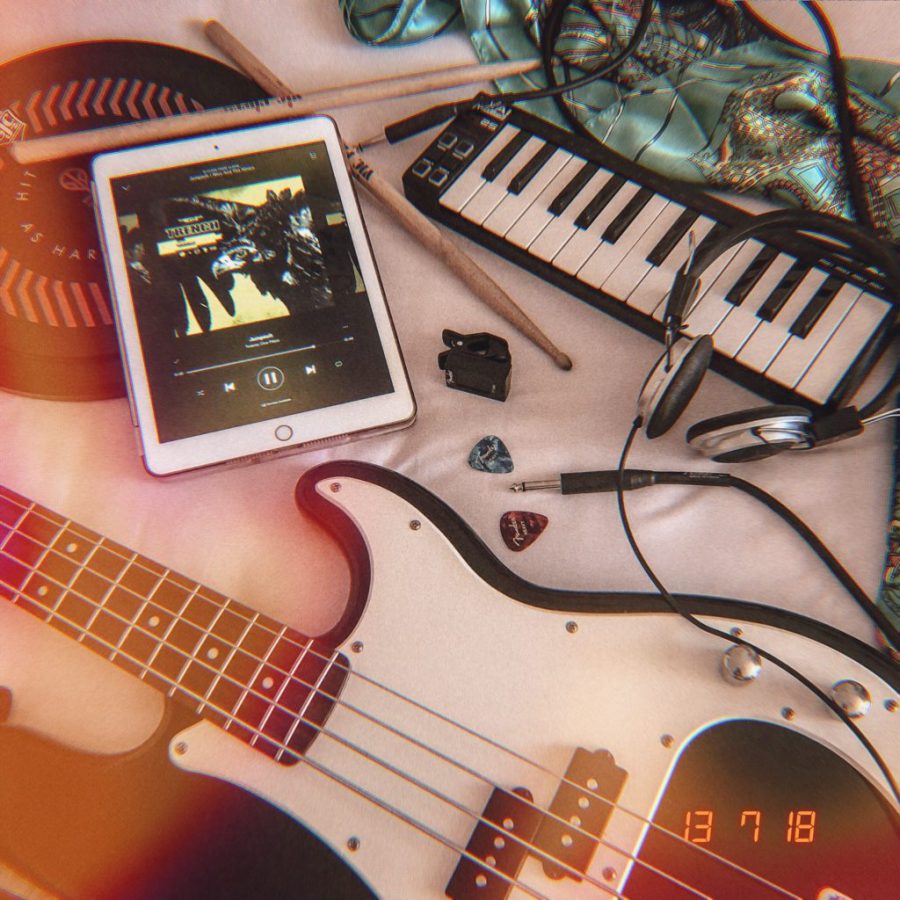Music and the Pandemic
The world stopped turning when the coronavirus showed up. Many of us stopped in place too; we stopped moving forward, enjoying our lives, our usual routines. I watched motivation disintegrate in myself and those around me. Be that as it may, any story with a positive ending has to seem bleak at one point or another.
There is always a way to scale an upward slope, a way to keep one’s head above water in troubling times. What we do is cling to our passions. Perhaps we even find new ones. Yes, accessibility was a major issue this past year, keeping us from enjoying our typical endeavors and hobbies in public places. However, there is endless depth in pastimes that can inspire contentment at home.
What saved me in 2020 was music.
I stopped playing double bass, cello, and piano. Yes, I stopped playing them during the pandemic. I’ve never enjoyed classical music all that much, so what little motivation I had to continue practicing it crumbled away. I’m more of a hard rock, grunge kind of guy. I’m a grungy boy. That’s why I started playing the electric bass.
Nirvana, Pearl Jam, Stone Temple Pilots. Suddenly I could play all my favorite songs. Suddenly I wanted to be in a band. Suddenly I felt like I was doing something worthwhile every day, and all it took was a bass guitar.
Every single one of us felt trapped at some point this past year. How can one live their entire life within the confines of their own home? It turns out that finite space can be made infinite with music. Of course, put shortly: we create music, we listen to music. But there’s so much more to explore when it comes to music, a vast expanse of the unknown, even for dedicated musicians. Endless exploration; that’s freedom.
Anyone with the ability to listen to music can fall in love with it. One can use a radio, or maybe an app on their phone to make musical discoveries. Taking inspiration from music doesn’t require high skill; a common misconception. I don’t mean to say that one must master music to truly indulge themselves. Rather, music itself is a catalyst. It instigates personal and social growth; a source of curiosity, entertainment, and common interests. Music brings people together. It creates bonds. It inspires those connections that we were all desperate for during lockdown.
As I prepare for higher education, I’ve already formed friendships with several other grungy boys who I’ll be attending college with. I even find myself eager to join a band–once the circumstances are appropriate, of course. I’m thankful for music: a stimulus for creativity, a solution to my social apprehension, a boundless source of inspiration and respite…
My sentiments towards music are far from unique. It’s been a salvation for many in these recent dismal months. Anna Ryu, an experienced and proficient musician, knows well the intrinsic value of music. Anna is a violinist and oboist, playing the latter as a member of the Empire State Symphony Orchestra. Though she would never admit it, the group is very highly regarded and demands great skillfulness of its members. Her dedication to music before and throughout the coronavirus pandemic has familiarized her with its importance.
Anna’s musical drive clashes with my own in that it relies heavily on the social aspect. Talking with her provided me with enlightening insight into the mind of a musician who plays for others, rather than for themselves. “For me, music is about people–the ability to be with and connect with everyone. My instrument is supposed to support a symphony, not play solos.” Music has not proven itself to Anna as an immunity to pandemic distress. The way she described her attitude when playing was “still excited, but demotivated.”
During the COVID-19 pandemic, Anna’s zeal as a musician has declined, but her participation and love for music have not. “I’ve found myself listening to music a lot more, like when I’m brushing my teeth. That, in a way, has been my escape.” She didn’t need her dexterity and talent to carry her love for music, as she was able to use it as an outlet in a different way.
One who brushes their teeth while wearing earbuds wields infinite power. A grungy boy would know.
My sister, Annika Robin, concurs with the idea that music has a place for everyone. Annika is a violist and a member of ESYO, the same group as Anna. She says that “there are so many different ways to use music to keep life interesting.” Annika also has words for those who have not given music a chance: “I would advise people to look into music and try to find a style that appeals to them. People do find other ways to entertain themselves or cope with stress, but I think that music is such a diverse concept, and I believe that there is something for everyone.”
What does music do for us as individuals? What does it add to? Annika put it simply: “well… life.”
Opinions aren’t all that support music as a powerful tool. With discovery and empirical scientific progression, music therapy is becoming increasingly relevant. Science backs the positive effects of music on the human body, as well as its expansion of psychological potential.
The American Music Therapy Association reports the effective use of music therapy to manage stress, enhance memory, and alleviate pain. Various experts and credible sources have verified the astounding therapeutic utility of music.
The Lancet, a highly respected journal, reinforces that music can significantly reduce physical pain. In a 2015 study, The journal reported decreased use of pain medication following surgery in patients who were treated with music therapy. The study involved 73 trials and over 7,000 patients. This phenomenon is best explained through the body’s hormonal reaction to music.
Barry Goldstein, an expert who has studied the vibrational impacts of music for over two decades, supports that music has a “profound impact on the brain.” He maintains that it provokes the production of beneficial endorphins like dopamine and serotonin (the “happy hormones”). These hormones are a natural antidepressant and adversary to anxiety.
The emotional impact of music is complemented by its effects on the neural system. According to Dr. Anne Fabiny of Harvard Health Publishing, music stimulates new neural connections, combating memory loss and increasing attention span in doing so.
The beneficial power of music is at our fingertips. Each of us can capitalize on its health benefits, simultaneously enjoying a hobby and adding depth to our personalities.
Any genre, from electric power beats to classical melodies, can be indulged in at home. Not only in listening to it, but in the creation of it. I implore you to listen to new music, download software, purchase an instrument, or anything else that might allow music to play a more significant role in your life. Even as a hobby, it is in everyone’s interest to take up music. It gives us depth and makes us happier, more sociable individuals. It is a means of liberation in desperate times.
To you all, who have suffered the hardships of the coronavirus pandemic: have faith in music as your remedy.


